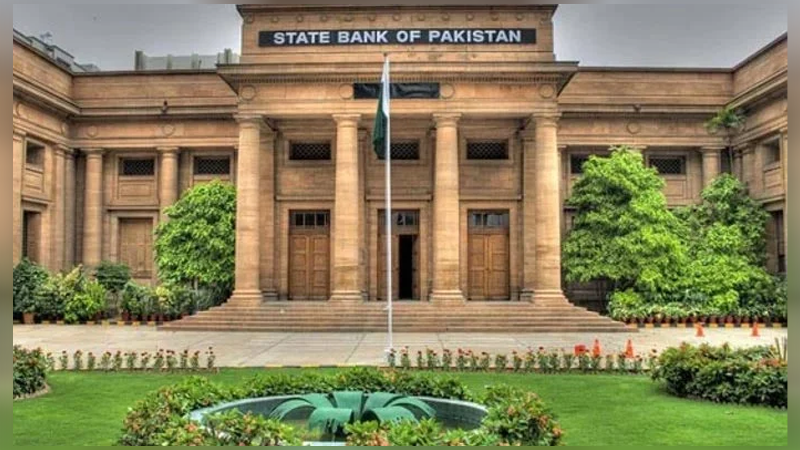In a significant move aimed at addressing the country’s economic challenges, the State Bank of Pakistan (SBP) announced on Thursday a 200 basis points (bps) reduction in its key policy rate, bringing it down to 17.5 per cent from 19.5pc. The decision comes amid growing demands from the business community and industry stakeholders for a substantial rate cut to stimulate economic activity and ease borrowing costs.
The SBP’s Monetary Policy Committee (MPC) made the decision after carefully assessing various factors influencing Pakistan’s inflation outlook. In its official statement, the central bank emphasised that the reduction would still maintain a sufficiently positive real interest rate, helping to drive inflation down towards its medium-term target of 5pc to 7pc, while also contributing to broader macroeconomic stability.
“The Monetary Policy Committee decided to reduce the policy rate by 200bps to 17.5pc in its meeting today,” the SBP statement read. The decision took into account the changing global and domestic economic conditions, including a sharp decline in global oil prices and improved inflation forecasts.
The central bank highlighted that its foreign reserves stood at $9.5 billion as of September 6, despite continued debt repayments and weak inflows. This was a key factor in the decision, alongside declining yields in secondary market government securities since the last MPC meeting.
The SBP also pointed to improved business confidence and inflation expectations, noting positive trends in its latest pulse surveys. However, it acknowledged that consumer confidence had worsened slightly, reflecting concerns about the future economic landscape.
By lowering the policy rate, the SBP aims to inject much-needed liquidity into the private sector, encourage investment, and support the country’s broader economic recovery. The move is expected to provide some relief to businesses struggling with high borrowing costs and signal a more accommodative monetary policy going forward.
A poll conducted by Topline Securities showed that an overwhelming 98pc of participants expected a rate cut, with 85pc of them anticipating a reduction of more than 150bps. The investment firm echoed this sentiment, suggesting that the SBP is likely to announce a 150bps cut, reflecting its cautious approach amidst economic challenges.
AKD Securities shared a similar outlook, predicting a 150bps reduction based on “higher real interest rates, the ongoing disinflationary trend, and weak economic activity.” This would mark the third consecutive rate cut by the SBP after two earlier reductions of 150bps and 100bps, respectively, lowering the rate from a peak of 22pc to the current 19.5pc.
Despite these cuts, the gap between inflation and interest rates remains a point of contention. The private sector, in particular, has expressed frustration, arguing that high borrowing costs are stifling economic growth and job creation.
The pressure on the central bank to lower rates comes as the government strives to meet the conditions of its $7 billion loan agreement with the International Monetary Fund (IMF). While the government has stated that this will be the last IMF programme if all conditions are met, experts believe that the SBP is unlikely to opt for drastic measures, preferring a more measured approach to maintain a buffer against inflation.
Earlier this year, Pakistan faced inflation rates as high as 38pc, despite aggressive interest rate hikes. However, inflation has steadily declined over the past three months, providing the government with an opportunity to boost liquidity in the private sector.
With the projected GDP growth rate for FY25 expected to rise to 3.5pc from 2.4pc in FY24, the upcoming monetary policy decision could play a crucial role in shaping Pakistan’s economic recovery. Experts believe that a reduction in interest rates would lower borrowing costs, encouraging private sector investment, stimulating economic activity, and creating jobs, particularly for the country’s youth, many of whom are seeking opportunities abroad due to limited domestic prospects.
